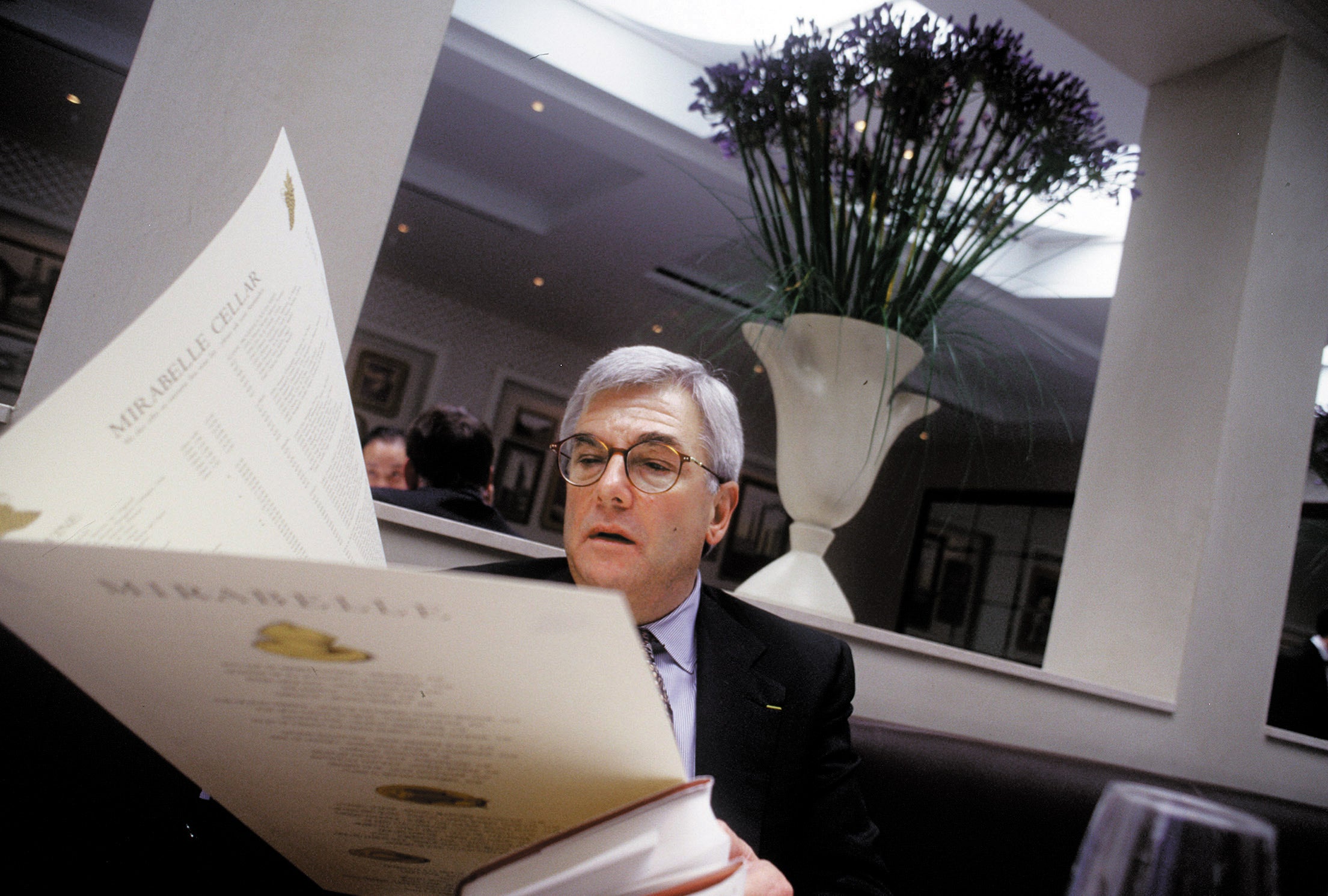“The inability to enjoy every type of food is as debilitating as the inability to enjoy sex,” says Jeffrey Steingarten ’68, who has written a food column for Vogue magazine since 1988. His book, The Man Who Ate Everything: And Other Gastronomical Feats, Disputes, and Pleasurable Pursuits (Alfred A. Knopf, 1997), a collection of his essays, won the top food writing awards here and in England and was a New York Times best-seller. A food correspondent for the online magazine Slate, he also has a cable television program that necessitates his eating at every new restaurant in New York. In April, he received first prize from the 2000 International Association of Culinary Professionals (IACP) for outstanding food journalism.
Before Steingarten became a food writer, he was hired by Barney Frank ’77, now a U.S. representative, to be an assistant to Boston’s former Mayor Kevin White. He went on to do research on poverty and mental health law and then practiced as a legal consultant in Manhattan.
Career success afforded Steingarten the luxury of gastronomic tours around the world, but it was a passion to write that began to distract the former Harvard Lampoon editor from law practice. British journalist Anna Wintour, familiar with Steingarten’s obsession for food and talent for writing humor, asked him to combine the two for an article. Wintour, now Vogue’s editor, hired Steingarten, who received awards for his food writing almost from the start.
Steingarten does not have a specialty. He’ll cover anything from the art of cooking to food history and regulatory issues. He has written essays on such topics as the chemistry of the perfect french fry, what makes delicious water taste really delicious, and popular nutritional fallacies. He was the first journalist to write about the French Paradox—that the French consume a much higher fat diet than U.S. residents but have half the heart attacks—and has worked with faculty in the nutrition department at Harvard School of Public Health, “pretty much the only honest nutrition experts around,” he said. Between trips to visit his wife, Caron, a museum curator in San Diego, he travels the world sampling food from any indigenous culture—from Japanese toro to blue corn tortillas with fried crickets topped with salsa. While at home he reads medical and scientific journals, tangles with government agencies in search of information, and even whips up recipes in his own Manhattan kitchen.
He credits his HLS education “entirely” for his success. “We were trained to seem smarter than the experts—doctors, nutritionists, regulators. Tangling with the USDA or the FDA is a breeze compared with Professors Haar and Michelman,” he said.
Steingarten learned to cook during law school by watching Julia Child on his black-and-white TV. And, like Child, he is not afraid to attack the prevailing wisdom on salt, fat, and diets. Said Steingarten, “Some nutrition writers . . . get rich pandering to the fear of eating any food at all.”
Recently Steingarten wrote about the “cheese crisis,” exploring the laws against the importation of raw milk cheeses like Brie into the United States, which the FDA claims could cause a host of illnesses. Now the FDA wants to broaden its ban to include aged cheeses, from which Steingarten feels the risk of illness is close to zero. Steingarten hopes to write more from a legal point of view on the FDA’s “questionable” ban.
“It all comes down to the public health model and whether the government is wise to force all of us to accept a perfectly sanitary environment. It’s always a balance. Did you know that 3,000 Americans alive today will die from electrocution? Somehow we’ve all decided that e-mail and electric espresso machines are worth the sacrifice of 3,000 lives.”
